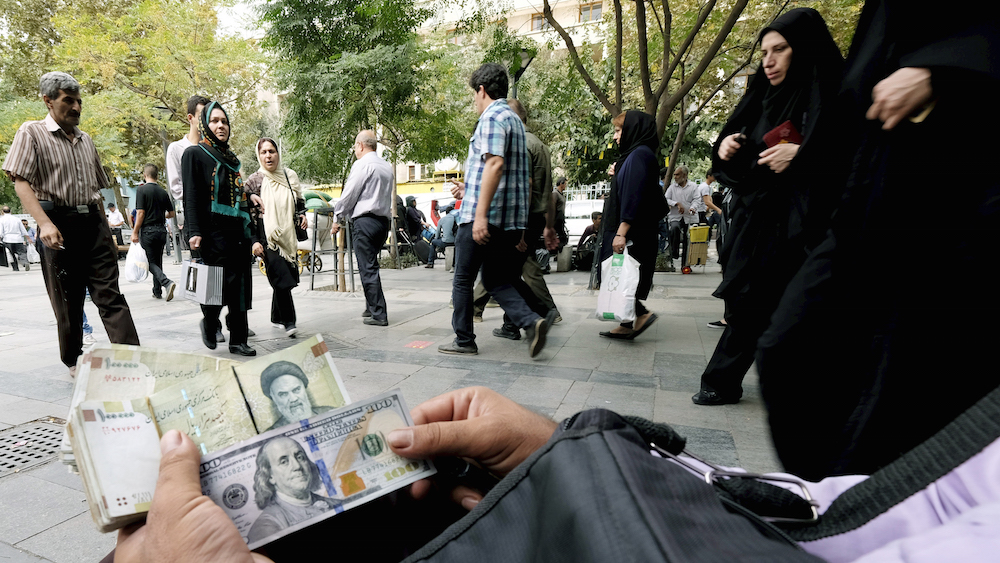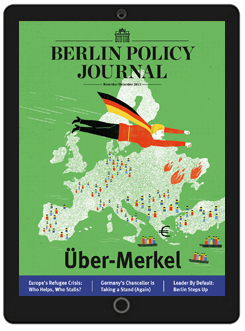Iran has the potential to be everything the hype insists it is – the last frontier market to fall to global capitalism. European firms are well-positioned to benefit. But realities on the ground are still dire.
On a recent trip with my son to the northwestern Iranian city of Ardebil, I was approached by a well-to-do man in a restaurant. When he heard that I was advising potential investors, he took a seat on our daybed (the restaurant was a traditional one, and I was enjoying a water-pipe after our meal), drew out a note pad, and jotted down three projects for which he sought foreign partners. One was a hotel, entertainment, and retail facility on the road to Sarein, a local resort famous for its mineral spas; a second was for organic children’s food using surplus plums, apples and pears produced in the region; and the third would be Ardebil’s first recycling village. We parted amid promises of future cooperation, but the truth is I suspected all along that I would be unable to find a foreign partner for my new friend, and I was right.There are two points to this story. The first is that Iran has changed significantly since the dismal days of Mahmoud Ahmadinejad. Then, a European visitor to a provincial town like Ardebil – particularly a Persian-speaker like myself – would not have been approached by a local entrepreneur. He would have been shadowed by the plainclothes security forces and shunned by ordinary people; business would have been the last thing on his mind. That this is no longer the case is down to the 2013 election of President Hassan Rouhani and his policies of economic stability and foreign détente. The respect that Rouhani, a tough-minded moderate, commands both inside and outside the country has lessened fears of war and domestic political meltdown, but Iran’s relative serenity has also heightened expectations. Iranians are not content with a diminution of tensions. They want work and prosperity.
This is where the second point comes in. Iranians’ fond belief that Rouhani would usher in a flood of investment has been disabused. Even the recent nuclear deal that Iran and the world powers signed in July in Vienna was a damp squib; red-faced portfolio managers who had predicted a 15 percent surge in stock values on the news had to explain to their investors why the main index of the Tehran stock exchange dropped 5 percent. There is huge Western interest in Iran as an investment opportunity – hardly a surprise, given Iran’s massive hydrocarbon resources, solid infrastructure, and young, educated, upwardly mobile population – but for all the myriad foreign delegations trooping into Tehran these days, sizing up opportunities and testing markets, Iran is still waiting.
A Basket Case
The economy that Rouhani inherited in 2013 was a basket case. Thanks to sanctions, oil revenues had collapsed the previous year and the rial had halved in value; the economy contracted 6.8 percent, and inflation soared toward its mid-2013 peak of 42 percent. Unable to import parts or machinery, factories closed and unemployment rose to an estimated five million. Corruption and populist largesse (billions of dollars were being handed out to compensate families for reductions in energy subsidies) did the rest. The country was close to exploding.
Since then Rouhani has steadied things through fiscal discipline and a diplomatic dividend that was reaped under the interim nuclear agreement of November 2013, which provided for limited sanctions relief and committed the global powers to refraining from additional sanctions. The government’s economic managers and private companies were now able to make plans with the knowledge that outside pressure on the economy would not get worse.
The rial duly stabilized, inflation came down to 14.5 percent in the first quarter of 2015, and growth reached 3.8 percent in the second half of last year. But the economy remained stuck in second gear, with oil exports down from 2.8 million barrels per day (in July 2011) to less than half that amount, and earnings further hit by the drop in oil prices. …
Read the complete article in the Berlin Policy Journal App – November/December 2015 issue.








